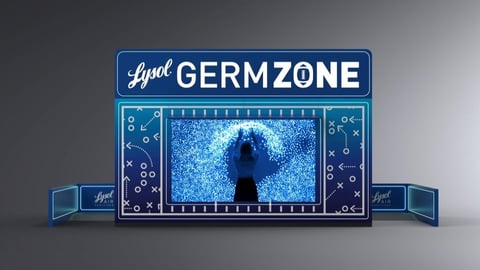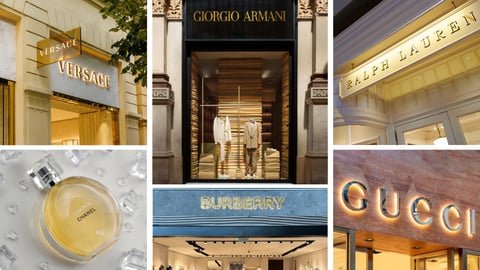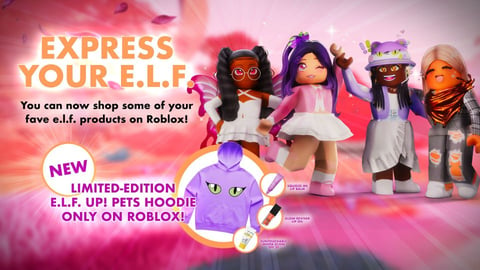How Unilever Is Prepping Its Teams For the Metaverse
Ask a consumer goods executive their thoughts on the metaverse, and you’re apt to see either a grin or a grimace — and rarely anything in between.
To be sure, hype surrounding the next big digital playground abounds, and while conversations are punctuated by healthy doses of both glee and skepticism, many CPGs are, at a minimum, having internal conversations as to whether this is something they need to prepare for.
For Unilever, the potential of the virtual experiences is extremely promising, but they will require governance from such CPG giants as itself. The No. 4 publicly owned consumer goods company recently shared insight into its metaverse strategy, describing both the metaverse and Web3 as being in “early days” and noting the responsibility it holds to influence the industry.
“We’re working to ensure we play a part in making this evolving arena representative, inclusive and safe for everyone who uses it,” the company wrote in a blog post.
As part of this, Unilever plans to leverage both its global scale and profile to establish foundations surrounding data privacy, safety, DE&I, sustainability, and ethics governance. It’s established an in-house “Web3 Collective” — a cross-functional group spanning marketing, finance, legal, media, procurement, licensing and more, intended to address the risks and concerns surrounding Web3 and the metaverse.
Emily O'Brien, program director of the Collective, compared the digital landscape shift to the one experienced during the onset of social media in the early 2000s.
[See also: Unilever’s Newest Way to Boost On-Shelf Availability]
“We know our consumers are already immersing themselves in these spaces and spending more of their time with virtual experiences that enable them to explore their passions, participate in cultural events, and engage with like-minded communities,” she noted. “This is a great opportunity for brands, but they must offer genuine utility to consumers and not just jump on the bandwagon. We’re shaping our approach in Unilever to ensure our brands show up authentically in the metaverse, and that people feel safe and valued in our spaces.”
Why We Need to Stop Calling Everything the Metaverse
In order to ensure the new virtual landscape is more equitable than both today’s internet and physical words, Unilever asserts that inclusivity must be at the forefront for such things as avatars and experiences, as well sustainability.
“From our work in this space so far, it’s clear that just as purpose connects with people in the real world, it matters in the metaverse too,” O'Brien added.
During a keynote at the World Federation of Advertisers (WFA) Global Marketer Week 2022 in April, Conny Braams, chief digital and commercial officer at Unilever, called on the advertising industry to work together for a decentralised, safe and trusted environment online.
"The challenges and concerns of consumers today will only be amplified in an environment where personal data becomes more personal,” she said. “Regulation alone is not enough. Self-regulation alone is not enough. Self-restraint alone is not enough.”
“We need a shift in mindset, from solving problems to preventing problems. We need to act so we don’t need to react. Prevent before we need to treat. Foresight instead of hindsight. (…) A true technology evolution must be accompanied by the development of substantial, new, ethical infrastructures and policies. (…) Because the internet without trust, is scandal.”
For many CPGs, the metaverse holds great potential for consumer engagement, though both its definition and ROI are perpetually muddy. While Forrester maintains that all current activities are precursors to the metaverse — as they offer immersive 3D experiences, but do not yet enable consumers to travel or move among disparate environments with their belongings — many companies are slotting their experiments under a large “metaverse” umbrella, particular within its marketing.
[See also: Heineken Embraces Digital Experiences]
For its part, Unilever has experimented in a number of ways with virtual experiences, including a virtual marathon held in Decentraland for its Degree brand. The event too had a DE&I component, with avatar wearables including wheelchairs, prostheses, and running blades.
Other Unilever initiatives executed within Decentraland have included the Closeup City Hall of Love with NFT marriage certificates and the Magnum Pleasure Museum with digital artwork. The latter bridged both the virtual and physical worlds, as consumers could order ice cream from a vending machine in Decentraland, while a partnership between Unilever and Deliveroo brought it to their homes.
Matteo Trichilo, marketing manager, noted that bringing people ice cream on-demand has been successful for within the gaming space. Moving into Decentraland was “a unique way to trial it in a new, emerging space and inspire other brands and industry leaders.”





